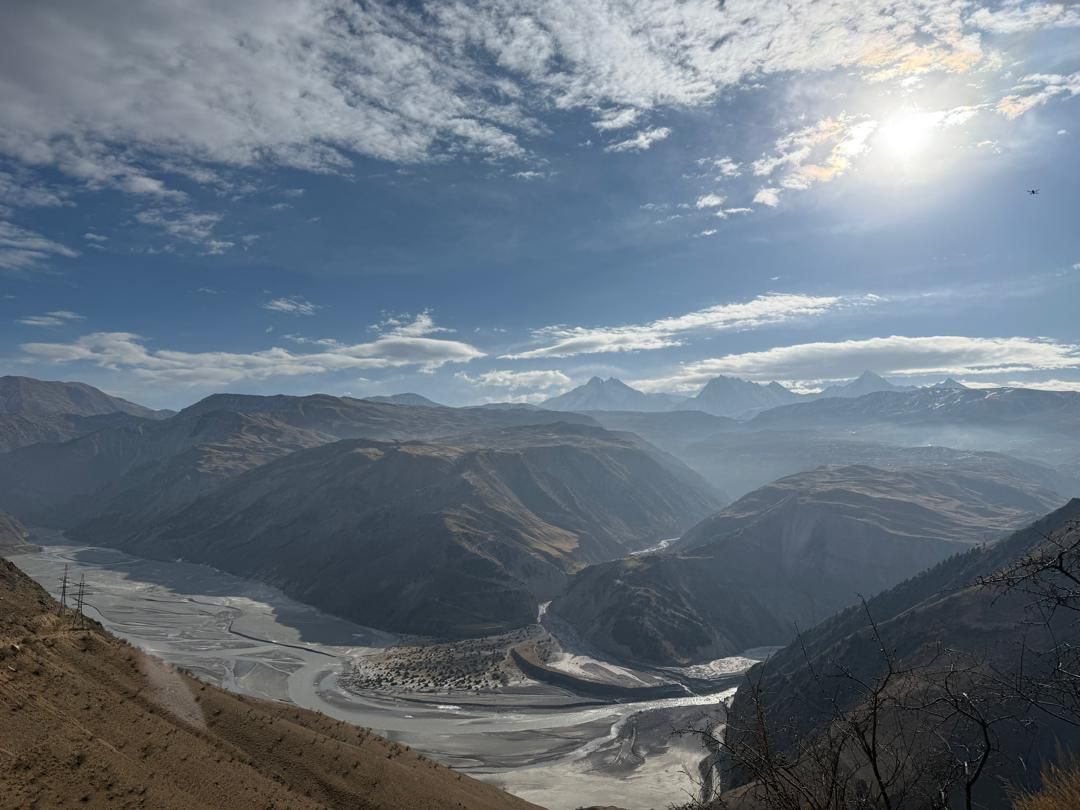EventKazakhstan1 November 2024
GLOFCA Project Enhances Disaster Preparedness in Uzbekistan’s Pskem and Tepar Villages
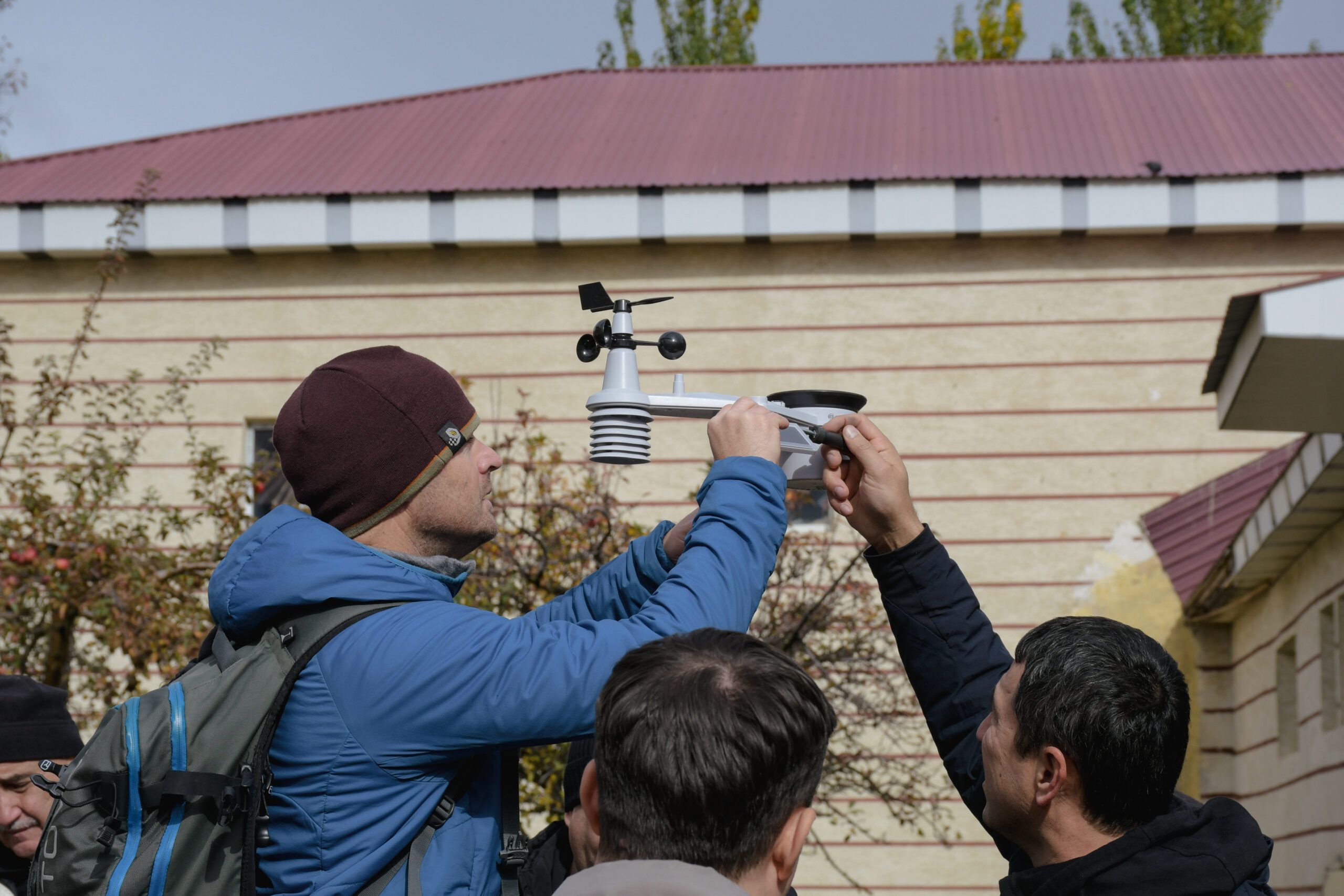
Rural communities across Central Asia face high risks from natural disasters like floods and landslides. Children and youth are especially vulnerable to these threats, which can severely impact mental health, leading to conditions like depression and anxiety. This highlights the importance of disaster preparedness in building resilience for future generations.
To address these needs, on October 28–29 the GLOFCA project team visited schools in the villages of Pskem and Tepar, Uzbekistan, which are the project pilot sites. The team included experts from the University of Zurich, Scientific Research Hydrometeorological Institute (NIGMI), the Institute of Geology and Geophysics, and SE “Uzbekhydrogeology.” These visits aimed to enhance disaster preparedness through interactive lessons and the installation of automated meteorological stations.
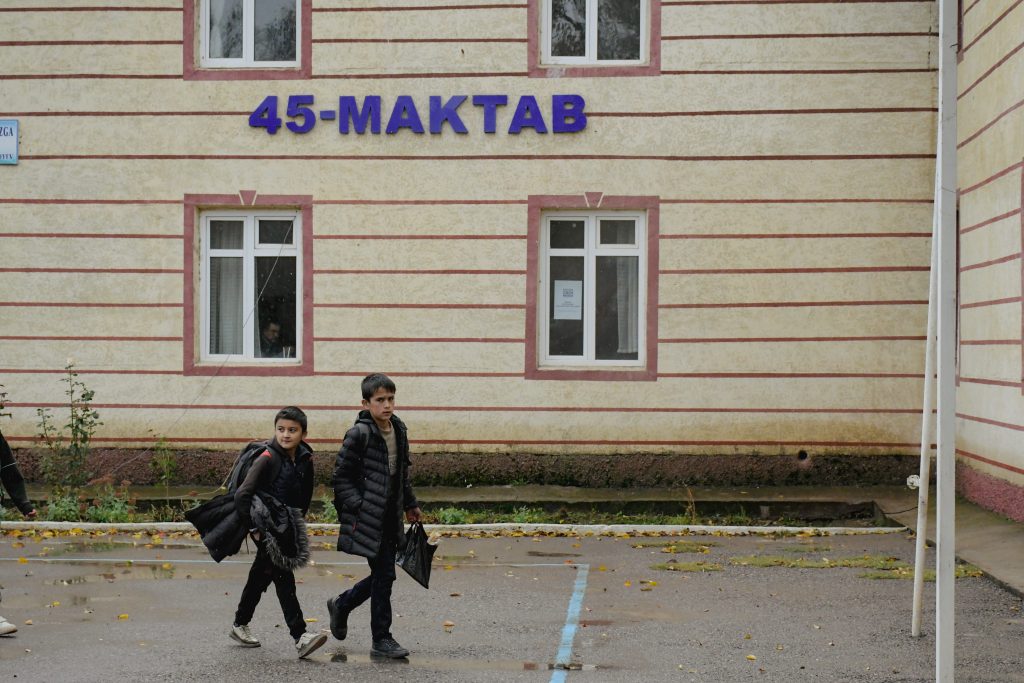
At Pskem School, the largest in the area with 113 students, the GLOFCA team delivered an open class on natural disaster risks. Leading hydrogeologist Ganisher Abdullaev from SE “Uzbekhydrogeology” introduced landslide science, helping students understand why and where these events occur, and which actions can help prevent or mitigate their effects. Following this, Zukhra Tillyakhodjaeva, Scientific Secretary at the NIGMI, led an engaging session on mudflows, distributing child-friendly booklets that outlined what to do before, during, and after a catastrophic event. Students eagerly participated, discussing which items are essential to carry in an emergency and the correct ways to act. To reinforce these concepts, they watched an animated video tailored to Uzbekistan’s most common disasters, such as landslides and floods.
Dr. Simon Allen from the University of Zurich then introduced the students to an automated meteorological station. He explained how weather data—particularly on rainfall, temperature, and humidity—can help predict and respond to landslides, which often occur after heavy rains in their region. He encouraged students to take part in maintaining the equipment by clearing it of snow and ensuring it stays connected to the internet, making them active stewards of local climate monitoring.
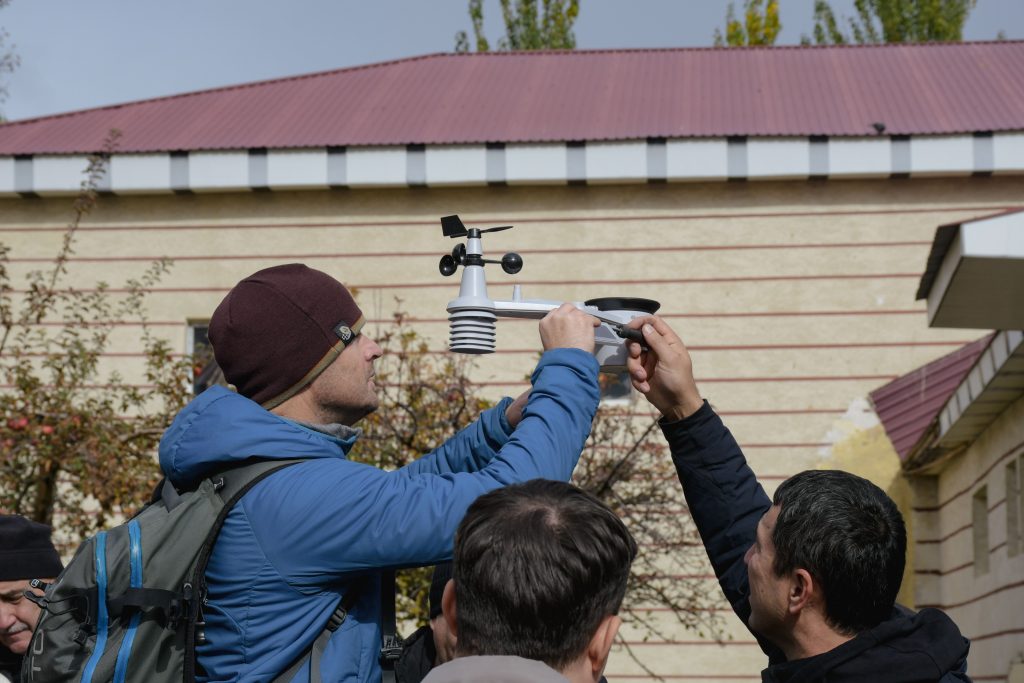
A similar session was held at Tepar School, reaching more students in the community with these essential lessons.
The new meteorological stations installed in each village allow students to monitor real-time data on temperature, humidity, wind speed, and other climate indicators, all accessible via an online platform. This data enables students to observe environmental changes that could affect natural disaster risks, enhancing their awareness and preparedness.
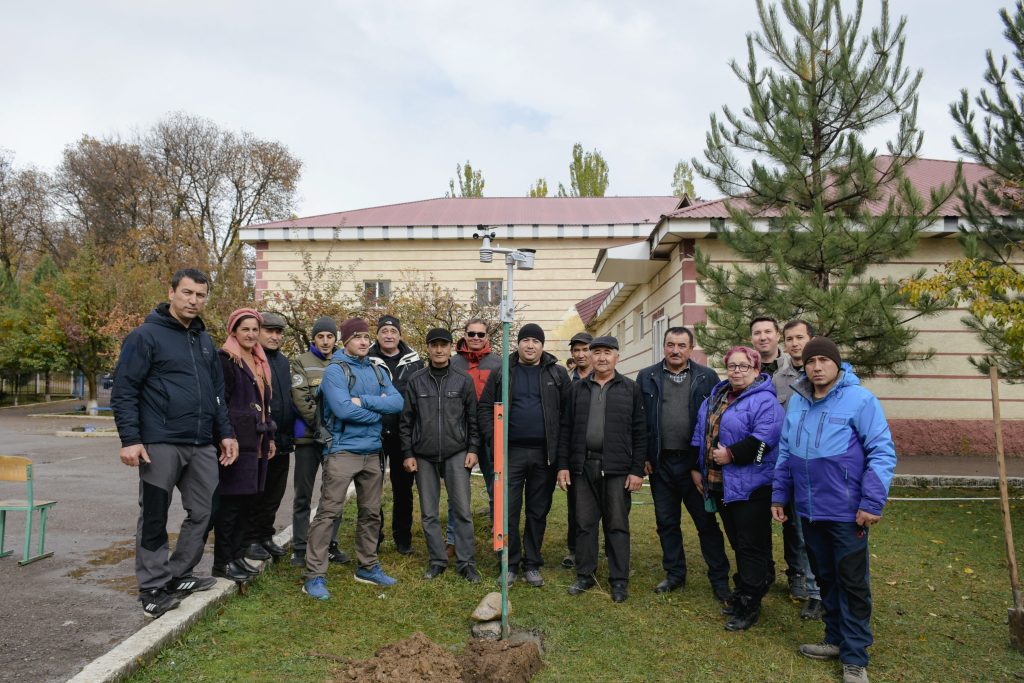
Read more
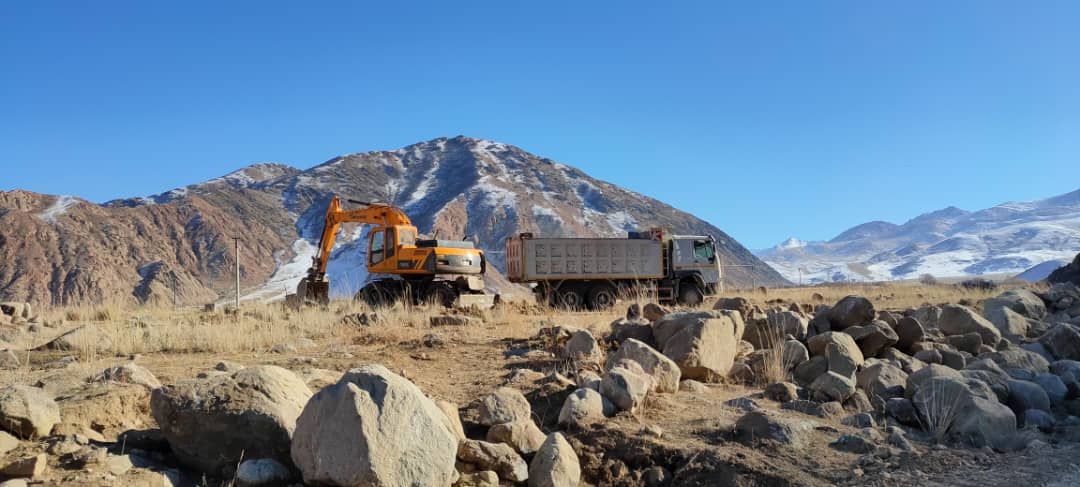
The GLOFCA Project Supports Construction of a Debris Diversion Channel in Tuura-Suu Village, Kyrgyz Republic
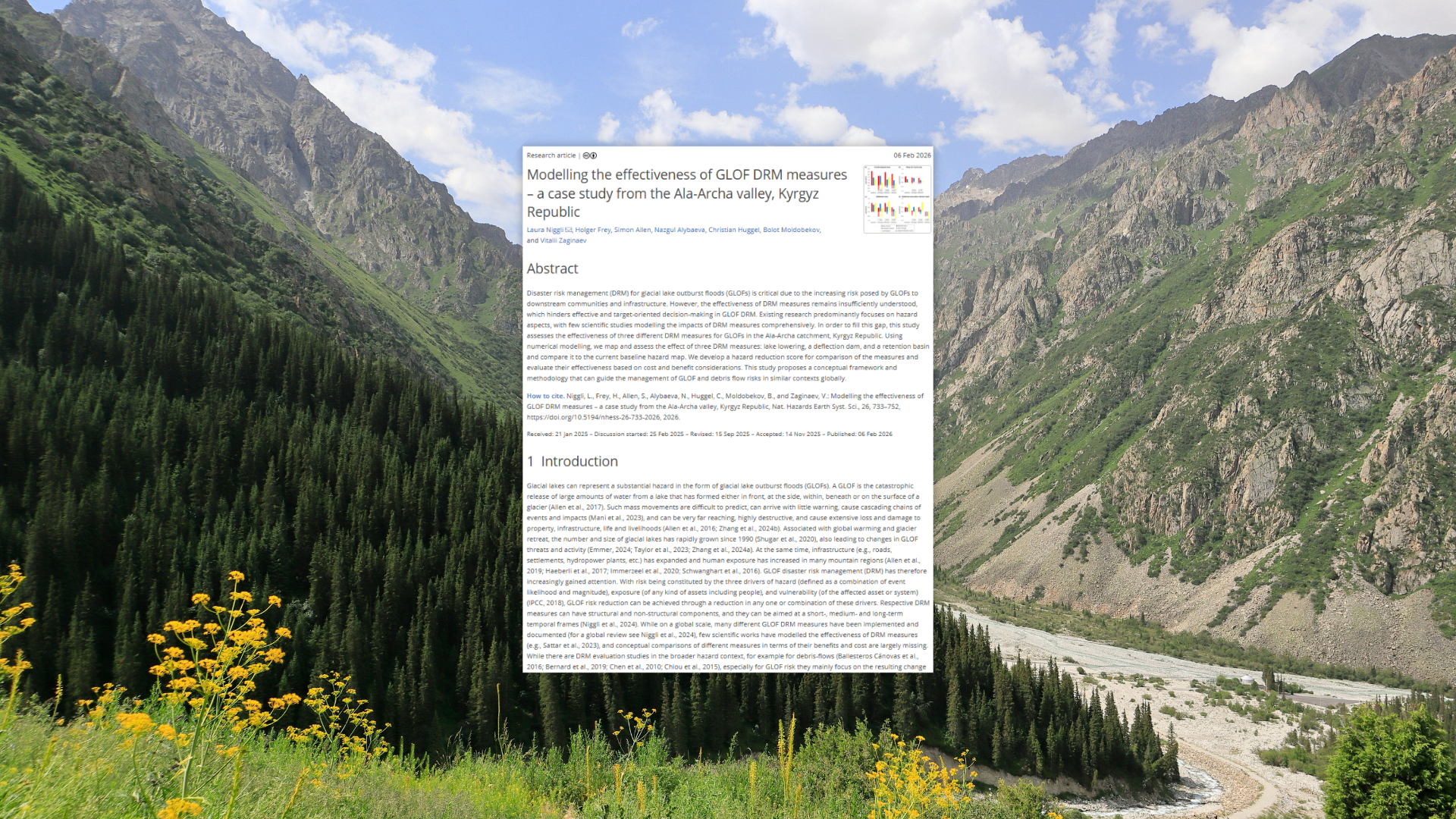
Study on the effectiveness of GLOF DRM measures in the Ala-Archa valley, Kyrgyz Republic
